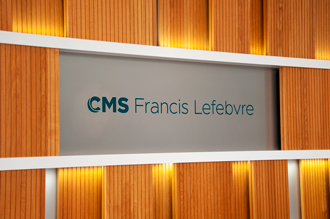
Consolidation of the foreign investment control regime continues with the publication in the official journal of 1 January 2020 of decree no. 2019-1590 of 31 December 2019 relating to foreign investments in France.
The decree is complemented by an Order, published on the same day, stipulating the list of requested documents to be provided prior to the examination of requests of opinion or authorisation applications (NOR: ECOT1937237A).
The objective of this legislation, which was announced several months ago, is to streamline foreign investments. The decree therefore clarifies the provisions of Articles L. 153-1 et seq. of the French Monetary and Financial Code as they result from the PACTE law [1]. The decree was also subject to a public consultation in the spring of 2019 [2].
This legislation has three objectives:
- to complete the reform initiated by the PACTE law and bring French law in line with the European Regulation establishing a framework for the screening of foreign direct investments into the Union [3];
- to clarify the scope of controlled activities;
- to meet the expectations of market practitioners.
Commenting on the publication of the decree and the order, the French Treasury (DGT) announced a “simpler, clearer and faster procedure”. What does this mean in practice?
What's new with the Decree no. 2019-1590 of 31 December 2019?
The new provisions apply to requests submitted as from 1 April 2020. They radically overhaul the regulatory section of the foreign investment control system. From that date, Articles R. 153-1 et seq. will be replaced by Articles R. 151-1 et seq. of the French Monetary and Financial Code.
Pursuant to Article L. 153-1, I of the French Monetary and Financial Code, Articles R. 151-1 et seq.: clarify the concept of investments subject to authorisation; expand the list of controlled activities; significantly modify the authorisation procedure; and, finally, specify the applicable sanctions.
Concept of "investment subject to control"
This concept appears in a single article, but its scope has been expanded.
In accordance with Article R. 151-2, a foreign investment subject to control is now characterised when “an investor mentioned in I of Article R. 151-1 of the French Monetary and Financial Code:
“1 Acquires control, within the meaning of Article L. 233-3 of the French Commercial Code, of an entity under French law;
“2 Acquires all or part of a business line of an entity under French law;
“3 Crosses the 25% threshold, directly or indirectly, alone or in concert, for holding voting rights in an entity governed by French law. […].”
It is notable that the entity rather than the company is now specified, thus expanding the scope of the previous provisions.
The French Minister of the Economy will notably be able to “block” the acquisition by a foreign investor of a holding in a French entity operating in a strategic sector if that acquisition relates to at least 25% of the voting rights (French Monetary and Financial Code, Art. R. 151-2, 3). The definition of control is also broad. For example, concerted action is taken into account. Previously, regulations triggered the authorisation process when an investor acquired a stake of at least 33.33% of the capital or voting rights in a French company.
France is therefore lowering this threshold, in line with some of its European partners.
N.B.: The threshold of 25% of voting rights does not apply (French Monetary and Financial Code, Art. R. 151-2, last subparagraph) :
- to an investor who is a “natural person possessing the nationality of a Member State of the European Union or of a State party to the Agreement on the European Economic Area that has concluded an administrative assistance agreement with France with a view to combating fraud and tax evasion and domiciled in one of those States”;
- nor to an “entity of which all the members of the chain of control are subject to the law of one of those same States or possess their nationality and are domiciled there.”
For the aforementioned natural persons and entities, the event giving rise to the investment subject to authorisation remains the acquisition of control within the meaning of the French Commercial Code.
Extension and unification of the scope of activities subject to control
These activities are included in the new Article R. 151-3 of the French Monetary and Financial Code, which now applies regardless of the investor’s nationality.
On the one hand, under the decree activities which were already subject to control are retained within the authorisation scope.
On the other hand, the decree expands the scope of activities subject to control: the printed press and online press services for political and general information [4], food safety [5], energy storage and quantum technologies (French Monetary and Financial Code, Art. R. 151-3).
Improved procedural framework
The objective here is to speed up the French Treasury's response time in merger and acquisition processes, especially for straightforward operations.
Firstly, the response to a request for opinion submitted to the Minister by an entity under French law or by an investor (French Monetary and Financial Code, Art. R. 151-4) remains subject to a two-month deadline.
Secondly, in relation to an authorisation request, the new legislation allows requests to be submitted by one of the members of a chain of control on behalf of all investors who are part of that chain (French Monetary and Financial Code, Art. R. 151-5).
This authorisation procedure can be accelerated since the French Minister for the Economy now has an initial period of 30 working days to respond to the request (French Monetary and Financial Code, Art. R. 151-6) and to decide that:
- the target’s activity is outside the scope;
- the investment is authorised without conditions;
- further examination is required for conditions to be imposed.
In the absence of a response within that deadline, the authorisation request is deemed to have been rejected.
In the case of further examination, Article R. 151-6 of the French Monetary and Financial Code appears to indicate that a new phase may be initiated for negotiating commitments. In any case, the final decision must be made within 45 working days from the date the investor who submitted the request receives notification of further examination from the minister. In the absence of a response within that deadline, the authorisation request is deemed to have been rejected.
Both the definition and revision of conditions are explicitly subject to compliance with the proportionality principle (French Monetary and Financial Code, Art. R. 151-8).
Article R. 151-9 of the French Monetary and Financial Code therefore specifies, for example, that a revision request may be requested by the investor in three different situations:
- unforeseen changes to economic and regulatory conditions;
- changes to the shareholding of the entity that was the subject of the investment or changes to the members of the control chain;
- application of one of the conditions imposed at the time of the autorisation.
The minister must make a decision within 45 working days upon receipt of the request. In the absence of a response within that deadline, the revision request is deemed to have been rejected.
It should also be noted that Article R. 151-10 of the French Monetary and Financial Code now strictly defines the grounds for refusing authorisation. The refusal must be made in a reasoned decision when "the implementation of conditions referred to in Article R. 151-8 is not sufficient in itself to ensure preservation of the national interests defined in Article L. 151-3. It also provided that the existence of "links with a foreign government or public body" may be taken into consideration by the Minister.
Refusal may also take place in the event of:
- serious presumption of the commission by the investor of certain precisely listed offences;
- final conviction of the investor for those offences (or for equivalent offences specified by the legislation of another State);
- sanction of the investor under the foreign investment regime or in the event that prior injunctions have been breached in the five years preceding the authorisation request (French Monetary and Financial Code, Art. R. 151-10).
These measures also ensure that the current system complies with the requirements of Regulation (EU) 2019/452 of the European Parliament and of the Council of 19 March 2019 establishing a framework for the screening of foreign direct investment into the Union.
Clarification of the applicable sanctions
Policing and sanction measures are set out in Articles R. 151-12 to R. 151-15 of the French Monetary and Financial Code. For example, injunctions by the French Minister for the Economy ordered pursuant to Article L. 151-3-1 can be subject to a fine of a maximum daily amount of €50,000.
The order of 31 December 2019
Pursuant to Article R. 151-16 of the French Monetary and Financial Code, the Order defines the list of documents and information to be provided in support of a “preliminary request to examine an activity” (or request for opinion, French Monetary and Financial Code, Art. R. 151-4) and an “authorisation request” (French Monetary and Financial Code, Art. R. 151-5).
This represents an overhaul of the order of 7 March 2003 defining certain implementing conditions for decree no. 2003-196 of the same date regulating financial relations with foreign countries.
Transitional period
Despite the lack of clarity of certain official notices, the new provisions apply to the examination of requests for opinion or autorisation applications submitted as from 1 April 2020 (Decree no. 2019-1590, Art. 4; Order of 31 Dec. 2019, Art. 8).
Until that date, the list of requested documents to be provided under the current procedural rules should remain unchanged.
| Read more: Foreign investments in France: new rules in 2020 |
| [1] Law no. 2019-486, 22 May 2019, relating to the growth and transformation of companies (PACTE). [2] https://www.tresor.economie.gouv.fr/Articles/2019/05/29/ouverture-d-une-consultation-publique-sur-la-revision-de-l-arrete-relatif-aux-investissements-etrangers-en-France [3] Regulation (EU) 2019/452 of the European Parliament and of the Council of 19 March 2019. [4] “the edition, printing or distribution of press publications containing political and general information, within the meaning of article 4 of law no. 47-585 of 2 April 1947 on the status of newspaper and periodical shipping and distribution companies, and online press services of political and general information within the meaning of Article 1 of law no. 86-897 of 1 August 1986 reforming press legislation.” [5] “the production, processing or distribution of agricultural products listed in appendix I to the Treaty on the Functioning of the European Union, when they contribute to the objectives of national food safety mentioned in 1, 17 and 19 of I of article L.1 of the French Rural and Maritime Fishing Code. |
For more information on our law firm:
Our law firm is a leading international business law firm. Its deep roots, unique positioning and highly recognised expertise enables it to deliver innovative, high value-added solutions in all areas of the law.











